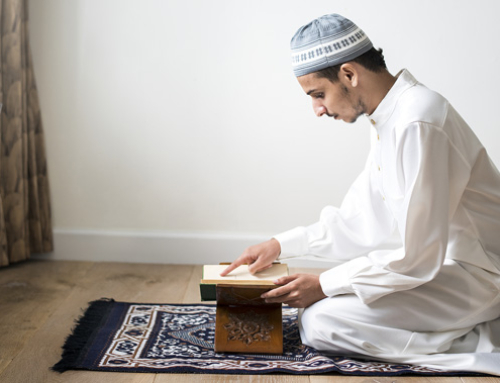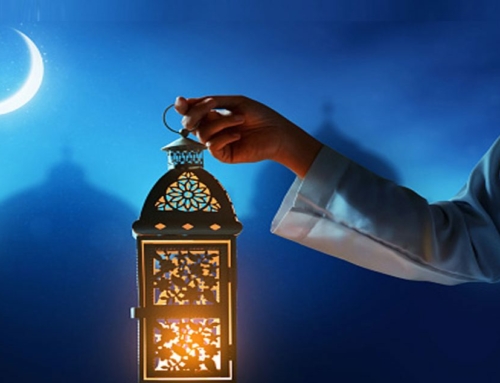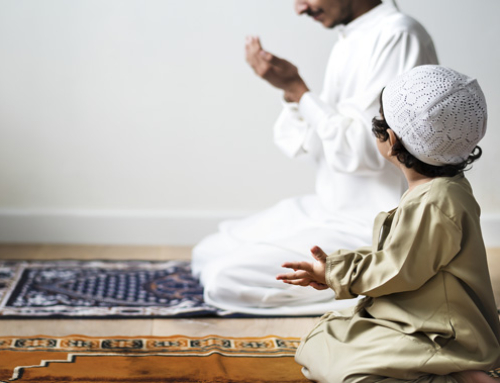Imad Benjelloun
May 1, 2022
KEY QUESTIONS
- What does Zakat al-Fitr mean?
- What is Zakat al-Fitr?
- Why is Zakat al-Fitr important?
- What is the purpose of Zakat al-Fitr?
- Can Zakat al-Fitr be given in money instead of food?
- Who should give Zakat al-Fitr?
- As a youth, should you give Zakat al-Fitr?
- Who should get Zakat al-Fitr? And can one get multiples of it?
- When should Zakat al-Fitr be given?
- What is the meaning and purpose of Eid al-Fitr?
- Why is Eid al-Fitr important?
- As a youth, how to celebrate Eid al-Fitr?
- As a youth, what should you do post Ramadan?
- How can you know if your Ramadan was a success?
ANSWERS
1. What does Zakat al-Fitr mean?
In Arabic, Zakat means that which purifies and causes growth; al-Fitr means to break the fast.
In Islam, Zakat means obligatory charity. Al-Fitr here means breaking the fast of Ramadan. So, Zakat al-Fitr means the obligatory charity to be given when Ramadan is coming to an end.
2. What is Zakat al-Fitr?
Zakat al-Fitr is 4 double handfuls (1 saa’) of dried dates or barley, or what is equivalent in food or money that is most useful to the needy of the time. Ibn Umar narrated that Prophet Muhmmad, God bless him and grant him peace, made Zakat al-Fitr obligatory as 4 double handfuls of dried dates or barley, to be given to every free or slave person, male or female, among Muslims. (Muslim)
Most scholars consider the dried dates or barley mentioned in the hadith as only examples, not to be understood as exclusive to other forms of donations because they were the best commodities that were most convenient and beneficial at the time.
3. Why is Zakat al-Fitr important?
Zakat al-Fitr is important because it is obligatory as stated by Prophet Muhmmad, God bless him and grant him peace, in the above hadith. As such, Zakat al-Fitr is one of the forms of the third pillar of Islam, Zakat, and so failing to give it could cause your entire religion (deen) to collapse.
Therefore, it is essential to learn all the necessary details about it, and most importantly give it timely to those who need it.
4. What is the purpose of Zakat al-Fitr?
The purpose of Zakat al-Fitr is manyfold:
- Purify your fasting in Ramadan from any shortcomings (e.g., vain talks, inappropriate behavior, bad deeds, and impure thoughts) and have it accepted by God Almighty. Remember that we are not perfect and so there will always be shortcomings (known and unknow), so this is truly a great opportunity from God Almighty to compensate for damages done to your fasting!
- Cause your wealth to grow, which is precisely one of the meanings of the word Zakat.
- Help the poor and needy so that they too can be happy and enjoy their Eid with enough food.
- Make the umma (worldwide Muslim community) stronger and more united because Zakat al-Fitr strengthens the bond of solidarity among Muslims whose rich are supposed to take care of its poor.
- Boost the economy because money gets more circulated whenever the rich are obligated to give to the poor.
5. Can Zakat al-Fitr be given in money instead of food?
Yes, Zakat al-Fitr can be given in money instead of food especially that nowadays it is much more convenient and beneficial; it will serve the purpose of getting the needy what they need the most and on time.
6. Who should give Zakat al-Fitr?
Every Muslim should give Zakat al-Fitr. That is because its obligation falls on the person, not on the wealth of the person. The head of the household gives it on behalf of any of their dependents (e.g., wife, children, parents) who cannot afford it.
7. As a youth, should you give Zakat al-Fitr?
Yes, as a youth, you should give Zakat al-Fitr if you are not eligible to take it. Your parent or guardian gives it on your behalf if you are dependent on them; otherwise, you give it on your behalf if you are working and providing for yourself.
8. Who should get Zakat al-Fitr, and can one get multiples of it?
Zakat al-Fitr should be given to the poor and needy. And yes, one can get multiples of it.
9. When should Zakat al-Fitr be given?
Zakat al-Fitr should be given before Eid prayer, otherwise, it would be considered just a regular charity and the person will be sinful.
10. What is the meaning and purpose of Eid al-Fitr?
In Arabic, Eid means that which returns and is repeated; it also means festival, and al-Fitr means to break the fast.
In Islam, Eid al-Fitr is the festival to celebrate the breaking and end of fasting in Ramadan. Its purpose is manyfold:
- Be grateful for all God’s countless and limitless bounties and blessings including the opportunity to have lived and fasted in another Ramadan. God Almighty says, “All this is so that you may complete the number (of fasts as prescribed) and magnify God for having guided you, and (so) that you may be grateful.”[1] Quran 2:185
- Celebrate all your Ramadan accomplishments including prayer on time, fasting properly, respecting and obeying your parents, Quran reading and memorization, du’a, dhikr, tarawih, suhur, charity, service, high grades at school, and good behavior.
- Remember the day you will return to your Creator, hoping and praying it be your biggest joy, a lot bigger than your joy in Eid. Ramadan versus the day of Eid is like this life versus the day of return to your Creator!
11. Why is Eid al-Fitr important?
Eid al-Fitr is important because it is a festival to celebrate the annual completion of the 4th pillar of Islam: fasting in Ramadan. Comparably, Eid al-Adha is a festival when an animal is sacrificed during the time of the 5th pillar of Islam: performing Hajj. Both are the two major annual festivals in Islam.
12. As a youth, how to celebrate Eid al-Fitr?
As a youth, the best way to celebrate Eid al-Fitr includes doing the following:
- BEFORE Eid day, remind your parent to ask your school to excuse your absence on Eid day; legally it is excused because of the freedom to worship that is guaranteed by the constitution.
- BEFORE Eid prayer, remind your parent (or guardian) to give Zakat al-Fitr on your behalf, or you should give it if you are providing for yourself and can afford it.
- BEFORE you go to Eid prayer, at the night before or in its morning, take a shower. And if you have reached puberty, take a shower in the form of a major ablution called ghusl.
- Pray fajr prayer on time, which is obligatory and more important than Eid prayer!
- Eat some dates (preferably an odd number of them) before going to Eid prayer.
- Wear the best clothes you have but most importantly dress modestly with your ‘awra properly covered. ‘awra is the intimate part of your body that is defined in Islam as follows: for a male, your ‘awra is the part of your body from the navel (bellybutton) to the knees; for a female, your ‘awra is your entire body except your face and hands.
- Proclaim the supreme greatness of God Almighty repeatedly (g.: allahu akbar allahu akbar allahu akbar, laa ilaaha illallah, allahu akbar allahu akbar, walillahil hamd) as recommended in Q.2:185. That is: God is greater, God is greater, God is greater. There is no god but God. And to God is due all praise.
- Perform Eid prayer in the Mosque to gain its special blessings, and also to show and strengthen the unity of the Muslim community.
- Be cheerful and joyful.
- Be a peacemaker not a troublemaker in the family and community, in all times, but especially on Eid day. So, if your siblings or anyone else, in the Mosque or outside, starts a heated argument or wants to fight, intentionally or accidently, deescalate the situation and be forgiving. And do not let Satan steal the joy of your Eid day.
- Offer congratulations and good wishes to others, such as Eid Mubarak (may this festival be blessed) and taqabbala allaahu minna wa minkum (may God accept from us and from you).
- Go to Eid prayer by one route and return by a different one if you are driving; otherwise remind your parent or driver to do so.
13. As a youth, what should you do post Ramadan?
Remember that you worship God not Ramadan. Ramadan comes and goes but God Almighty does not for He is always there, “closer to you that your jugular vein (the vein in your neck)”[2] (Quran 50:16). So, as a youth, what you should do post Ramadan includes the following in order to continue to worship God Almighty, get closer to Him, and so achieve top levels of success in this life and the next:
- Ask God Almighty to accept your fasting in Ramadan and forgive you for any shortcomings in it.
- Be thankful to God Almighty for having lived this past Ramadan and ask Him to enable you to reach and live the next one.
- Ask God Almighty to give you the motivation and energy to continue to worship Him and get closer to Him outside Ramadan.
- Make up any missed days of fasting as soon as possible, if you missed them after your reached puberty.
- Continue to pray the 5 obligatory prayers on time and build your daily schedule around them because they are a main source for guidance, protection, energy, support, and success.
- Sustain the spirit of tarawih by performing qiyamullayl (optional night prayer).
- Continue to do the righteous acts and good deeds you performed in Ramadan, especially listening to your parents, reading and memorizing the Quran, making du’a and dhikr, helping others, excelling at school, and displaying high character.
- Fast six days in Shawwal, the month right after Ramadan; such six days do not have to be consecutive. Narrated Abu Huraira, God be pleased with him, that Prophet Muhammad, God bless him and grant him peace, said, “Whoever fasts in Ramadan, then follows it with fasting for six days in Shawwal, it will be equivalent to fasting for the entire year.” (Sunan Abu Dawud)
Why? Because 1 good deed is multiplied by 10. So, fasting 30 days of Ramadan is multiplied by 10, which is 300. Fasting 6 days in Shawwal is also multiplied by 10, which is 60. The sum of 300 and 60 is 360 which is about the number of days in an entire year.
- Fast on Mondays and Thursdays, and on the middle three days of the month of the Islamic calendar: 13th, 14th, and 15th. Narrated Abu Huraira, God be pleased with him: I heard the Messenger of God, God bless him and grant him peace, say: “(Fasting in) the month of patience (Ramadan) and on three days of each month is equivalent to fasting for the entire year.” (Sunan An-Nasa’i)
Why? Because 1 good deed is multiplied by 10. So, fasting 3 days is multiplied by 10, which is 30. And if you do that all 12 months that would be 360 (30 x 12), which is about the number of days in an entire year.
- Seek and stick to the company of the righteous, and stay away from bad friendships and illicit relationships. Remember that righteous companionship and community is the key to doing all the above.
14. How can you know if your Ramadan was a success?
Your success in Ramadan depends on how much of what you started in Ramadan will continue after Ramadan, or better, increase after Ramadan, to advance in your journey to your Lord Most High!
[1] [وَلِتُكْمِلُوا۟ ٱلْعِدَّةَ وَلِتُكَبِّرُوا۟ ٱللَّهَ عَلَىٰ مَا هَدَىٰكُمْ وَلَعَلَّكُمْ تَشْكُرُونَ]
[2] [وَلَقَدْ خَلَقْنَا ٱلْإِنسَـٰنَ وَنَعْلَمُ مَا تُوَسْوِسُ بِهِۦ نَفْسُهُۥ ۖ وَنَحْنُ أَقْرَبُ إِلَيْهِ مِنْ حَبْلِ ٱلْوَرِيدِ]






